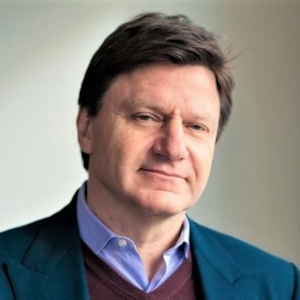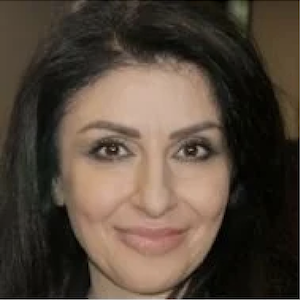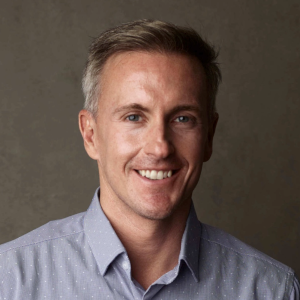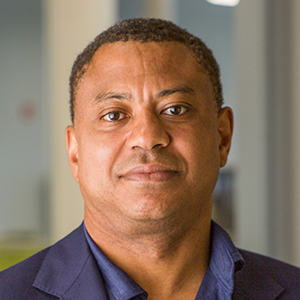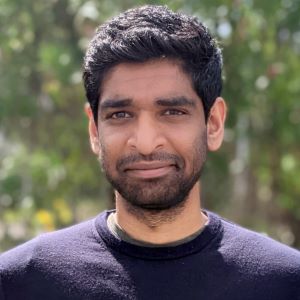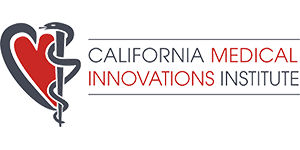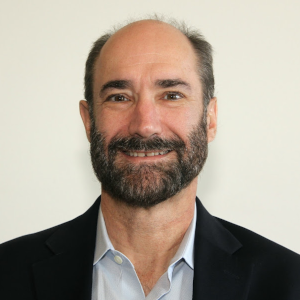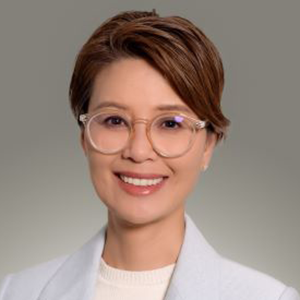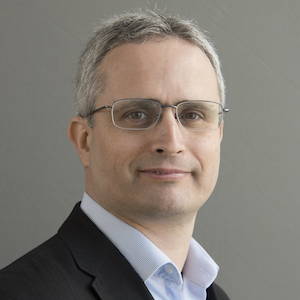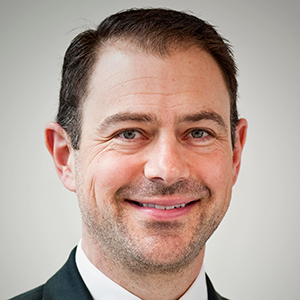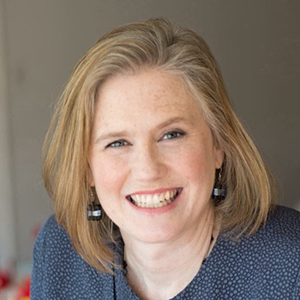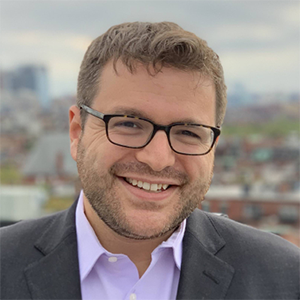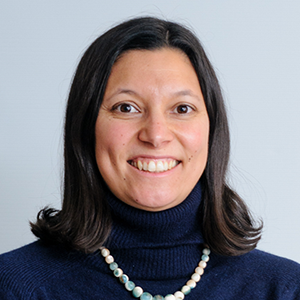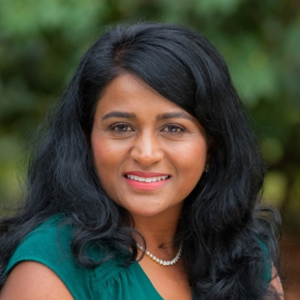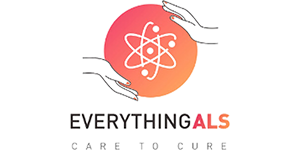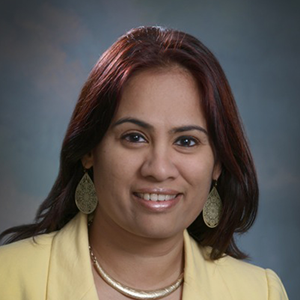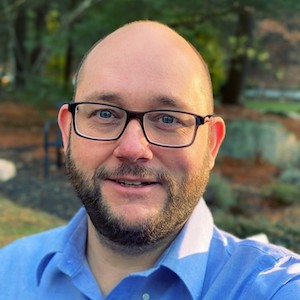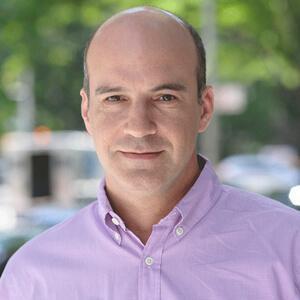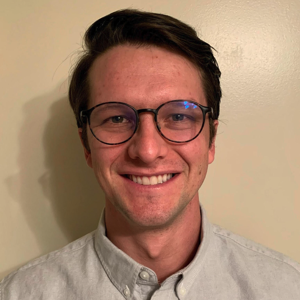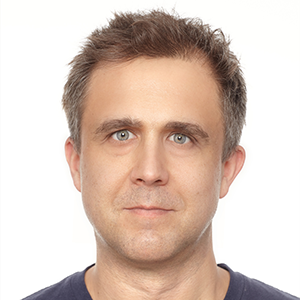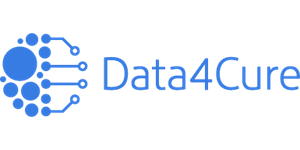Session Abstract – PMWC 2023 Silicon Valley
Track Chair:
William Oh, Mount Sinai
- PMWC 2023 Award Ceremony
Honoree: Gad Getz, Broad Institute
- How Healthcare Can Solve Its Data Problem
- Rod Tarrago, AWS
- Analysis of Omics Data Using Novel AI Strategies Provides Insights and Applications into Healthcare
- Michael Snyder, Stanford University - NLP Applications to Parse Unstructured Medical Text
Chair: William Oh, Mount Sinai
- Rong Chen, Sema4 - IImproving the Probability of Technical and Regulatory Success (PANEL)
Chair: Elizabeth Lamont, Medidata Solutions
- Dawn Barry, Luna
- Peter Bach, Delfi
- Jacob Aptekar, Medidata - AI/ML Applications for Patient Outcomes Prediction and Clinical Decision Support
Chair: Alex Sherman, Harvard University
- Indu Navar, EverythingALS
- Nuray Yurt, Novartis Oncology
- Jake Donoghue, Beacon
- Marie-Abèle Bind, Harvard - FAIR Data Approaches to Make Data Usable, Accessible, and Findable
- Bhavesh Patel, Calmi2 - The Pharma Informatics Ecosystem (PANEL)
Chair: Maria Kasarides, BMS
- Colin Hill, Aitia
- Chris Bakan, Roche
- Subha Madhavan, Pfizer - PMWC Showcase
- Jack DiGiovanna, Seven Bridges
- Janusz Dutkowski, Data4Cure
Session Chair Profile
Biography
The focus of Alex’s work is conception, design, development of technology, infrastructure, and methods for collaborative clinical research in disease-specific networks.
Alex’s CIB team introduced such innovative platforms as NeuroBANK®, a patient-centric research platform and accelerated research environment; PRO-ACT™, a harmonized anonymized dataset from clinical trials to design future trials and predictive and survival models in ALS; and The SigNET™ Platform for unique and secure patient identification across research continuum.
All three platforms won the Best Practice Award from Bio-IT World Congress in Precision and Translational Medicine category. In 2021, Alex received prestigious Healey International Prize for Innovation in ALS.
Alex also researches patient empowerment and incentives, secure collaboration, integration, harmonization, and clinical and research information sharing.
Alex chairs Big Data committee of NEALS consortium, and a founding Board Member of ALD Connect consortium. He holds MS degree in Nuclear Engineering and graduated from a doctorate program in Nuclear Engineering.
Session Chair Profile
Biography
William K. Oh, M.D. is Chief Medical Officer at the Prostate Cancer Foundation and Clinical Professor of Medicine at Icahn School of Medicine. He is an internationally recognized medical oncologist with over 25 years of clinical and translational research experience and leadership roles in academia and industry. He has authored more than 350 articles, reviews, books and book chapters related to genitourinary cancers. He has conducted multiple clinical cancer trials and has served in key invited roles for ASCO, ACS, and AUA. He also recently served as Chief Medical Officer for Sema4, a genomics and health intelligence company.
Session Chair Profile
Biography
Maria Karasarides leads medical strategy and innovation for the oncology early development portfolio. With an applied focus on innovative technologies and biomarkers, she oversees the integration of medical research designed to address real-world problems that impede clinical outcomes and meaningfully bridge research into clinical practice and patient care. Her experience spans the academic and pharmaceutical sectors with a focus on clinical and translational development. She held leadership positions at Regeneron Pharmaceuticals, AstraZeneca and Bristol Myers Squibb where she advanced the development of investigational immune modulating therapies, durvalumab (ImfinziTM) & tremelimumab based combinations, and was a key member of the ipilimumab (Yervoy®) launch team. Dr. Karasarides holds a Ph.D. in biology/biochemistry and conducted her graduate work on RAS/PI3K signaling at the Lerner Research Institute, Cleveland Clinical Foundation. During her post-doctoral fellowship at the Institute of Cancer Research, London, UK, she delineated BRAF as a therapeutic target in melanoma.
Speaker Profile
Biography
Dr. Lungren is Chief Medical Information Officer at Nuance Communications, a Microsoft Company. As a physician and clinical machine learning researcher, he maintains a part-time interventional radiology practice at UCSF while also serving as adjunct faculty for other leading academic medical centers including Stanford and Duke. Prior to joining Microsoft, Dr Lungren was an interventional radiologist and research faculty at Stanford University Medical School where he led the Stanford Center for Artificial Intelligence in Medicine and Imaging (AIMI). More recently he served as Principal for Clinical AI/ML at Amazon Web Services in World Wide Public Sector Healthcare, focusing on business development for clinical machine learning technologies in the public cloud. His scientific work has led to more than 100 publications, including work on multi-modal data fusion models for healthcare applications, new computer vision and natural language processing approaches for healthcare specific domains, opportunistic screening with machine learning for public health applications, open medical data as public good, and prospective clinical trials for clinical AI translation. He has served as advisor for early stage startups and large fortune-500 companies on healthcare AI technology development and go-to-market strategy. Dr. Lungren is frequently featured in national news outlets such as NPR, Vice News, Scientific American, and he regularly speaks at national and international scientific meetings on the topic of AI in healthcare. Dr. Lungren is also a top rated instructor on Coursera where his AI in Healthcare course designed especially for learners with non-technical backgrounds has been completed by more than 10k students around the world - enrollment is open now: https://www.coursera.org/learn/fundamental-machine-learning-healthcare
Speaker Profile
Biography
Colin Hill is a leading voice in AI and precision medicine and brings impressive leadership experience in developing and commercializing AI solutions and discoveries in biopharmaceutical drug discovery and development and in managed care industries. He co-founded leading AI biosimulation company Aitita (formally GNS Healthcare) in 2000, and has since served as CEO. In 2020 the company launched the world’s first Virtual Patients beginning in Multiple Myeloma and has since launched Virtual Patients in Prostate Cancer and Alzheimer’s Disease. Colin currently serves on the board of Centrexion Therapeutics, a biotech company focused on developing and commercializing non-opioid, non-addictive chronic pain drugs. Colin previously served on the boards of Biotelemetry Inc. (NASDAQ: BEAT), the leading mobile health information company (acquired by Philips in 2021), and PPD Inc. (NASDAQ: PPD), a leading global contract research organization (acquired by Thermo in 2021).
Speaker Profile
Biography
Bhavesh Patel completed his Ph.D. in Mechanical Engineering at the University of California Berkeley where he specialized in computational modeling. He joined the California Medical Innovations Institute (Calmi2) right after graduating in 2015 where he has been developing computational models for various organs and medical devices. He has been involved in Findable, Accessible, Interoperable, and Reusable (FAIR) data practices since 2019. He founded and leads the FAIR Data Innovations Hub, a division at Calmi2 where he and his team are developing various computer tools that make it easier for biomedical researchers to make their data FAIR. These include tools such as SODA (Software to Organize Data Automatically) for the NIH SPARC program and fairhub.io for the NIH Bridge2AI program.
Talk
Optimizing AI-based discoveries through FAIR data practices
The Findable, Accessible, Interoperable, and Reusable (FAIR) Principles provide a widely accepted framework for curating and sharing research data in a way that optimizes reuse by humans and machines. Here, I will present our solutions for FAIRifying biomedical research data, which is crucial to increase the pace of AI-based discoveries.
Speaker Profile
Biography
Dr. Snyder received his Ph.D. training at the California Institute of Technology and carried out postdoctoral training at Stanford University. He is a leader in the field of functional genomics and multiomics, and one of the major participants of the ENCODE project. His laboratory was the first to perform a large-scale functional genomics project in any organism, and has developed many technologies in genomics and proteomics. Seminal findings from the Snyder laboratory include the discovery that much more of the human genome is transcribed and contains regulatory information than was previously appreciated (e.g. lncRNAs and TF binding sites), and a high diversity of transcription factor binding occurs both between and within species. He launched the field of personalized medicine by combining different state-of–the-art “omics” technologies to perform the first longitudinal detailed integrative personal omics profile (iPOP) of a person, and his laboratory pioneered the use of wearables technologies (smart watches and continuous glucose monitoring) for precision health.
Speaker Profile
Biography
Christine Bakan leads a global organization at Roche responsible for computational biology/ bioinformatics, AI/ML algorithms & data science, and software as a medical device research & development of industry leading genomic, digital pathology and antigen/antibody marker based diagnostics technologies.
Speaker Profile
Biography
Dr. Getz is an internationally acclaimed leader in cancer genomics and is pioneering widely used tools for analyzing cancer genomes. Dr. Getz is a Professor of Pathology at Harvard Medical School. He is the Director of Bioinformatics at the Massachusetts General Hospital (MGH) Cancer Center and Department of Pathology, and is an Institute Member of the Broad Institute of MIT and Harvard, where he directs the Cancer Genome Computational Analysis Group. He has published numerous papers in prominent journals describing new methodologies to study cancer genomes that have identified new genes and pathways involved in different tumor types, mutational signatures, and tumor evolution.
Speaker Profile
Biography
Dr. Getz is an internationally acclaimed leader in cancer genomics and is pioneering widely used tools for analyzing cancer genomes. Dr. Getz is a Professor of Pathology at Harvard Medical School. He is the Director of Bioinformatics at the Massachusetts General Hospital (MGH) Cancer Center and Department of Pathology, and is an Institute Member of the Broad Institute of MIT and Harvard, where he directs the Cancer Genome Computational Analysis Group. He has published numerous papers in prominent journals describing new methodologies to study cancer genomes that have identified new genes and pathways involved in different tumor types, mutational signatures, and tumor evolution.
Speaker Profile
Biography
Rod Tarrago, MD leads clinical informatics for academic medicine at AWS. He has 15 years of experience as a CMIO at two pediatric healthcare systems and was a pediatric critical care physician for 20 years.
Talk
Healthcare systems can combine collaboration and cloud technology to address data quality, scarcity, and impact.
Speaker Profile
Biography
Rong Chen is a recognized leader on translational bioinformatics, genetics, genomics, and precision medicine. For over 20 years, he has developed a wide variety of knowledgebase, data solution, platform, and clinical applications to drive clinical value in Health systems. He has developed Centrellis data platfrom to abstract longitudinal journey of millions of patients from diagnosis, treatment, to outcome from structured and unstructured data in EMR, interpret pathogenicity of hundreds of millions of genetic variants, enable physicians and scientists in health systems and Biopharma to visualize journey of millions of patients, and understand the natural history, disease progression, and treatment response for oncology and rare genetic disease. Using the platform, he developed algorithm to scan EMR and predict patients who requires clinical genetic tests but never tested to shorten diagnostic odyssey systematically. He has authored over 100 papers, and was a founding member of two startup, Sema4 and Personalis.
Talk
Scalable Data Platform to drive value with Health Systems
I will present Centrellis data platform to abstract, analyze, and visualize journey of millions of patients with clinical and genetic information, deliver solutions to deliver clinical values to Health Systems at scale.
Session Chair Profile
Biography
Elizabeth Lamont, MD, MS is Senior Medical Director for Integrated Evidence at Medidata AI. A physician scientist with more than 25 years in academic medicine, she is a medical oncologist and a health services researcher. She both led NIH-funded research labs initially at the University of Chicago and then Harvard Medical School which focused on the generalizability of therapies developed in clinical trial settings and cared for patients with cancer in both ambulatory and hospital settings. At Medidata AI, she serves as an expert in research methodology at the interface of clinical medicine, clinical trials, and technology and as a clinical subject matter expert.
Speaker Profile
Biography
Jacob translates scientific innovation into clinical interventions. He completed his medical degree from the HST Program at Harvard Medical School and his PhD in neuroscience from MIT, where his research focused on computational neurophysiology and the effects of neuroactive compounds on brain network activity. His published works span epilepsy, cognition and machine learning methods for quantifying pharmacological effects on neural activity. Jake co-founded Beacon Biosignals, the worlds leading computational neurodiagnostics company, to harness machine learning to unlock the power of EEG data in order to advance precision medicines for neurologic and psychiatric disorders.
Speaker Profile
Biography
Marie-Abèle Bind is an Instructor of Investigation at the MGH Biostatistics Center and an Assistant Professor at the Harvard Medical School. Her research interests focus on defining the causal questions being asked by describing real or hypothetical multi-factorial interventions, developing causal inference methods for quantifying the effects of randomized and nonrandomized exposures on health outcomes and understanding the mechanisms explaining these health effects. Her current research has been funded by the NIH Early Independence Award program. Dr. Bind completed her joint PhD in Biostatistics and Environmental Health at the Harvard School of Public Health, working with Professors Brent Coull and Joel Schwartz. She then became a Ziff postdoctoral Fellow at the Harvard University Center for the Environment. In 2016, she was awarded an Early Independence Award (NIH HighRisk High-Reward research grant) and became Research Associate in the Department of Statistics. From 2017 to 2021, she became a John Harvard Distinguished Science Fellow.
Speaker Profile
Biography
Over the past 20 years, Indu has served as CEO, founder, board member, and investor of several Silicon Valley software companies, during which she led the development of innovative products resulting in successful exits. In 2019, after Indu lost her husband to ALS, a neurodegenerative disease, she is focused on bringing AL/ML on physiological data to help discover digital biomarkers for brain diseases. Earlier, Indu was managing director at Woodside Capital Partners, where she advised software companies on strategic financing and M&A. Indu was founder and CEO of Serus Corporation, provider of SAAS solution for companies with outsourced manufacturing. Serus was acquired by E2Open. Indu was early in the founding team of Healtheon, WebMD. She started as an engineer at Silicon Graphics and NASA in Moffett Field.
Speaker Profile
Biography
Subha is a dynamic and results-driven leader with a strong track record of excellence in organizations that operate at the nexus of science, technology and business. She has initiated and successfully directed several productive clinical research and development programs in the Government, academia and BioPharma industry. She was an advisory member to the Biden Foundation’s Cancer Moonshot Program and advised on pre-competitive data sharing initiatives across Pharma, Health Tech companies and research organizations to drive innovation. She has been recognized for her work through several awards including the Service to America award in the Science and Environment category (2005), Research Acceleration Award by AACR and Pancreatic Cancer Action Network (2015), and Women in Tech Global award (2021). At Pfizer, she leads a team focused on advancing precision therapies across multiple treatment areas including Anti-Infectives, Oncology, Immunology & Inflammation among others.
Speaker Profile
Biography
Talk
Accelerating Drug Development Processes for Target Identification Clinical Trials
Speaker Profile
Biography
Health policy and payment expert, pulmonary physician, and lung cancer epidemiologist, Peter has devoted his career to repairing defects in the healthcare delivery system that impede access to highquality cancer care and working to ameliorate healthcares cost crisis. His work spans seminal studies including that identification of racial gaps in lung cancer care, the development of the first lung cancer risk prediction model (the Bach model), lead authorship on multiple lung screening guidelines, and definitional work on pharmaceutical pricing and value. Peter previously served as Senior Adviser at the US Centers for Medicare Medicaid Services and mentor on many National Institutes of Health K awards. He has been elected to the National Academy of Medicine, American Society for Clinical Investigation, and the Johns Hopkins Society of Scholars.
Speaker Profile
Biography
Jacob Aptekar is Vice President of Trial Design Solutions at Acorn AI, a Medidata Solutions company and part of Dassault Systemes. Dr Aptekar has over 10 years of experience as a basic science researcher, business leader and data scientist. He most recently served as an Associate at McKinsey & Company within their Digital McKinsey practice working with public and private sector clients who use technology to deliver healthcare and develop therapies. Previously, he founded and led Qurator Inc, a data science company focused on the progression of chronic kidney disease and care planning for dialysis. Dr Aptekar received an MD from the David Geffen School of Medicine at UCLA, his PhD from UCLA in Neuroscience under the mentorship of Mark Frye, an investigator with the Howard Hughes Medical Institute and an AB in Physics from Harvard College
Speaker Profile
Biography
Janusz Dutkowski is Founder and CEO of Data4Cure, Inc. – a company focused on combining systems biology, machine learning and AI to facilitate continuous translation of biomedical data to knowledge. His background is in mathematics and computer science and he has been working at the intersection of mathematics, computer science and biology to develop new data-driven technologies to advance the discovery of new biomarkers and precision-based therapies. His research contributions include the development of methods for multiscale analysis of molecular networks and integrative methods for biomarker discovery from multidimensional data. He has co-authored over 20 research papers published in scientific journals including Nature Biotechnology, Science and Cell.
Talk
Knowledge graphbased ecosystem for pharmaceutical R&D
Speaker Profile
Biography
Dawn Barry, President & Cofounder, Luna: Dawn Barry is a veteran of the biotech industry and an advocate for girls and women in STEM professions. Her current company, Luna, has received numerous awards from notable institutions including the Word Economic Forum and Fast Company for redesigning the biomedical research model by bridging collectives of people with industry and researchers for dynamic studies and trials. Prior to Luna, Barry spent 12 years helping build Illumina, where she ultimately served as the Vice President of Applied Genomics and led pioneering teams in precision medicine, translational genomics, population genomics, and clinical screening, among others. Barrys accomplishments include being named San Diego Business Journals 2017 Business Woman of the Year, giving a talk at TEDxSanDiego 2016, and receiving Girl Scouts San Diego Cool Women award in 2019.







